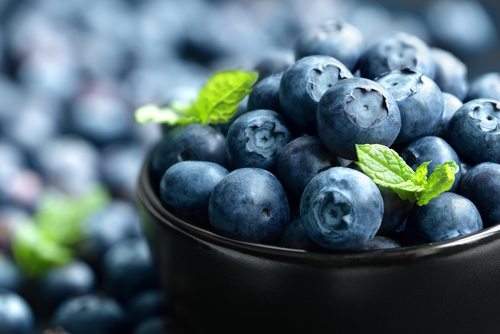During Cold & Flu Season, Protect Yourself By Eating Right
Cold and flu are a larger burden than we may think. Between treatments, illness-compromised productivity, and lost workdays, it is estimated that the common cold alone costs the U.S. $40 billion each year.We all know the basics for reducing exposure — wash your hands, avoid touching your face, and avoid being exposed to people who are already ill. Some people may choose the influenza vaccine, however it is important to know that it is not very effective. An independent analysis of flu vaccine studies by the Cochrane Collaboration found that even under ideal conditions (vaccine completely matching circulating flu virus) 4% of unvaccinated people and 1% of vaccinated people became infected — only a minor benefit. The authors estimated that under typical conditions, 100 people need to be vaccinated to avoid one set of influenza symptoms or you would have to be vaccinated every year for 100 years, to save yourself one flu episode. Interestingly, the study showed that flu vaccine did NOT significantly affect the number of people hospitalized or working days lost, and did not prevent flu–associated complications or those rare flu–associated deaths. Those of us who eat healthfully need not worry about the dangers of the flu. Excellent nutrition can reduce our vulnerability to infection and reduce the length and severity of illness if we do become infected. Many micronutrients are required to support proper function of the immune system, and phytochemicals from colorful produce have additional anti-microbial and immune-boosting effects. Mushrooms Mushrooms have a unique ability to activate the body’s natural immune defenses. Reishi and shiitake mushrooms enhance activity of natural killer (NK) cells, which attack cancerous and virus-infected cells. Shiitake mushrooms protect against influenza infection in animal studies. Fortunately though, it is not only exotic mushrooms that benefit the immune system. Eating white button mushrooms daily was found to enhance immune defenses in mucosal linings such as those in the mouth and respiratory tract. Dendritic cells are another type of immune cell that protects the respiratory tract, and their activity is also enhanced by white button mushroom phytochemicals. Mushrooms should only be eaten cooked: several raw culinary mushrooms contain a potentially harmful compound called agaritine, and cooking mushrooms significantly reduces the agaritine content. Cruciferous Vegetables The cruciferous family of vegetables includes kale, collards, mustard greens, arugula, watercress, broccoli, broccoli rabe, cabbage, cauliflower, kohlrabi, and more. The bitter, spicy or pungent flavors of these vegetables are provided by glucosinolates, which are converted into potent anti-cancer compounds, called isothiocyanates (ITCs), upon chopping or chewing. In addition to their anti-cancer effects, ITCs also support the immune system and have antimicrobial properties. Cruciferous vegetable phytochemicals may enhance interferon activity, which is an important component of the body’s antiviral response. To maximize ITCs, chop cruciferous vegetables finely, eat them raw and chew them well; the enzyme that converts glucosinolates to ITCs (called myrosinase) is activated by disrupting the plant cells and deactivated by heat. However, you can still get ITCs from your cooked cruciferous vegetables: chop them finely before you begin to cook and add some raw cruciferous to the meal. For instance, if you are eating cooked broccoli, add some shredded cabbage to your salad, which will provide some myrosinase to produce more ITC from the already cooked broccoli. Gut bacteria have the myrosinase enzyme, so a small amount of ITCs from cooked cruciferous vegetables will be produced in the digestive tract as well. (Shutterstock*) Berries Berries are powerful anti-cancer foods that also offer protection against viruses. Antioxidants called flavonoids, which are abundant in berries, have antiviral activity. In fact, if you do get the flu, taking anthocyanin-rich elderberry juice may even shorten the duration of your symptoms. Berries and grapes are also rich in resveratrol, another antioxidant phytochemical with strong antiviral effects — resveratrol has been shown to block the replication of influenza and other respiratory viruses. Plus, strawberries are high in vitamin C, which protects immune cells from oxidative damage. The benefits of berries go far beyond cold & flu protection. Flavonoid antioxidants like those in berries are not just antioxidants — flavonoids also act on signaling within the cell leading to many beneficial effects: flavonoids activate the body’s natural detoxification enzymes, block the growth of cancer cells, decrease inflammation, and support proper blood pressure regulation. Berries (and pomegranates) are also extremely rich in another antioxidant called ellagic acid, a compound known to block cancer cell and tumor growth. Onions & Garlic There is no convincing evidence for using

Cold and flu are a larger burden than we may think. Between treatments, illness-compromised productivity, and lost workdays, it is estimated that the common cold alone costs the U.S. $40 billion each year.
We all know the basics for reducing exposure — wash your hands, avoid touching your face, and avoid being exposed to people who are already ill. Some people may choose the influenza vaccine, however it is important to know that it is not very effective. An independent analysis of flu vaccine studies by the Cochrane Collaboration found that even under ideal conditions (vaccine completely matching circulating flu virus) 4% of unvaccinated people and 1% of vaccinated people became infected — only a minor benefit. The authors estimated that under typical conditions, 100 people need to be vaccinated to avoid one set of influenza symptoms or you would have to be vaccinated every year for 100 years, to save yourself one flu episode. Interestingly, the study showed that flu vaccine did NOT significantly affect the number of people hospitalized or working days lost, and did not prevent flu–associated complications or those rare flu–associated deaths.
Those of us who eat healthfully need not worry about the dangers of the flu. Excellent nutrition can reduce our vulnerability to infection and reduce the length and severity of illness if we do become infected. Many micronutrients are required to support proper function of the immune system, and phytochemicals from colorful produce have additional anti-microbial and immune-boosting effects.
Mushrooms
Mushrooms have a unique ability to activate the body’s natural immune defenses. Reishi and shiitake mushrooms enhance activity of natural killer (NK) cells, which attack cancerous and virus-infected cells. Shiitake mushrooms protect against influenza infection in animal studies. Fortunately though, it is not only exotic mushrooms that benefit the immune system. Eating white button mushrooms daily was found to enhance immune defenses in mucosal linings such as those in the mouth and respiratory tract. Dendritic cells are another type of immune cell that protects the respiratory tract, and their activity is also enhanced by white button mushroom phytochemicals. Mushrooms should only be eaten cooked: several raw culinary mushrooms contain a potentially harmful compound called agaritine, and cooking mushrooms significantly reduces the agaritine content.
Cruciferous Vegetables
The cruciferous family of vegetables includes kale, collards, mustard greens, arugula, watercress, broccoli, broccoli rabe, cabbage, cauliflower, kohlrabi, and more. The bitter, spicy or pungent flavors of these vegetables are provided by glucosinolates, which are converted into potent anti-cancer compounds, called isothiocyanates (ITCs), upon chopping or chewing. In addition to their anti-cancer effects, ITCs also support the immune system and have antimicrobial properties. Cruciferous vegetable phytochemicals may enhance interferon activity, which is an important component of the body’s antiviral response. To maximize ITCs, chop cruciferous vegetables finely, eat them raw and chew them well; the enzyme that converts glucosinolates to ITCs (called myrosinase) is activated by disrupting the plant cells and deactivated by heat. However, you can still get ITCs from your cooked cruciferous vegetables: chop them finely before you begin to cook and add some raw cruciferous to the meal. For instance, if you are eating cooked broccoli, add some shredded cabbage to your salad, which will provide some myrosinase to produce more ITC from the already cooked broccoli. Gut bacteria have the myrosinase enzyme, so a small amount of ITCs from cooked cruciferous vegetables will be produced in the digestive tract as well.

(Shutterstock*)
Berries
Berries are powerful anti-cancer foods that also offer protection against viruses. Antioxidants called flavonoids, which are abundant in berries, have antiviral activity. In fact, if you do get the flu, taking anthocyanin-rich elderberry juice may even shorten the duration of your symptoms. Berries and grapes are also rich in resveratrol, another antioxidant phytochemical with strong antiviral effects — resveratrol has been shown to block the replication of influenza and other respiratory viruses. Plus, strawberries are high in vitamin C, which protects immune cells from oxidative damage. The benefits of berries go far beyond cold & flu protection. Flavonoid antioxidants like those in berries are not just antioxidants — flavonoids also act on signaling within the cell leading to many beneficial effects: flavonoids activate the body’s natural detoxification enzymes, block the growth of cancer cells, decrease inflammation, and support proper blood pressure regulation. Berries (and pomegranates) are also extremely rich in another antioxidant called ellagic acid, a compound known to block cancer cell and tumor growth.
Onions & Garlic
There is no convincing evidence for using garlic supplements for symptoms of the common cold. However, eating garlic and onions daily has clear benefits when it comes to cancer prevention, and may also help to build immune defenses, including macrophage, T cell, and NK cell activity. Plus, several garlic phytochemicals have virus-killing activity against common respiratory viruses. Like cruciferous vegetables, the active compounds in onions and garlic are produced when the plant cells are disrupted, so they are best eaten raw, chopped finely and chewed well.
Appropriate Supplements
Vitamin D and zinc are important players in immune function, so maintaining adequate stores of these micronutrients will also help to protect against cold and flu. Children given vitamin D supplements throughout the winter reduced the occurrence of flu compared to a placebo group, and taking supplemental zinc regularly was found to slightly reduce the number of colds caught by children. Since vitamin D is not readily available in the food supply, and zinc is not highly absorbed from plant foods, well-designed supplements are a good choice.
If You do Become Ill:
If you do get a cold, treat it wisely. Many cold remedies are ineffective, and some may even prolong the illness. For example, megadoses of vitamin C do not prevent colds or reduce symptoms, and fever-reducing medications actually hinder the body’s attack on the infection. (In my book Super Immunity, I evaluate a number of common cold and flu remedies.)
Don’t be alarmed if your cold symptoms last longer than you expect. On average, patients report that their common cold symptoms last one and a half to two weeks. In children, earaches tend to last anywhere from less than one day to 9 days, sore throat 2 to 7 days, cough up to 25 days, and the common cold 7 to 15 days.32 In time, the body will clear the virus on its own. Remember, over-the-counter medications merely mask symptoms, and may even impair healing. However, if you experience a sudden worsening of symptoms, especially including labored breathing, or a fever above 103 degrees for three days, then it is time to call the doctor.
Of course, as your diet improves, you will be less likely to become ill, and if you do, you will recover more quickly. This year, to protect yourself against cold and flu, get enough sleep, avoid putting your hands near your nose or mouth, and eat healthfully. A nutrient-rich diet provides your body with a spectrum of immunity-boosting phytochemicals that also protect against heart disease, diabetes and cancer.
This article was originally published on www.drfuhrman.com. Read the original here.
*Images of “woman” and “berries” via Shutterstock












